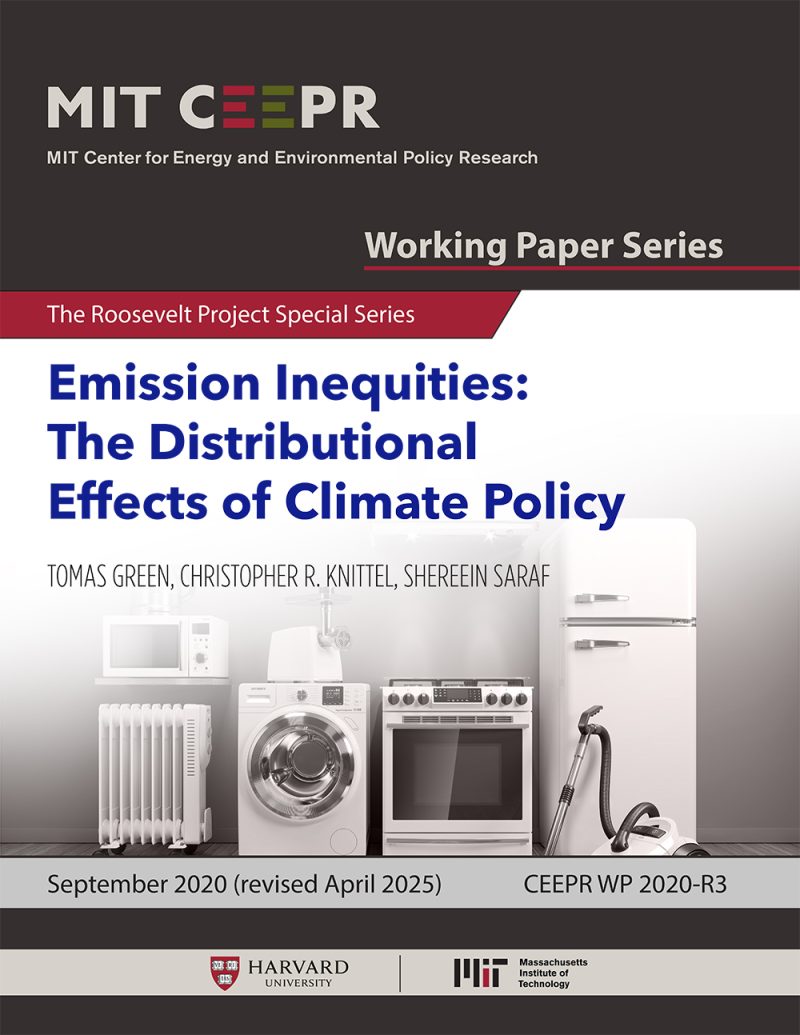Emissions Inequities: The Distributional Effects of Climate Policy
Tomas Green, Christopher R. Knittel, and Shereein Saraf
September 2020 (revised April 2025)
This paper applies machine learning methods to estimate household carbon footprints across the roughly 80,000 US census tracts, uncovering significant disparities based on income, geography, and urbanity. We evaluate the distributional impacts of seven climate policies, including carbon pricing, gasoline taxes, and intensity standards such as electricity clean energy standards and fuel economy standards. Policies vary considerably in their burden on low-income households, with the carbon tax policies being progressive while intensity standards are regressive. A simple carbon tax-and-dividend policy and the intensity standards also lead to much larger burdens on middle-American and rural households. We show that adjusting carbon tax dividends based on geography and urbanity can address these disparities and improve policy equity. However, this is not possible within intensity standards since they do not generate revenue.
Keywords: Climate Policy, Carbon Footprints, Distributional Impacts, Geographic Disparities, Rural-Urban Divide
JEL codes: Q54, Q52, Q58, D31, R14



